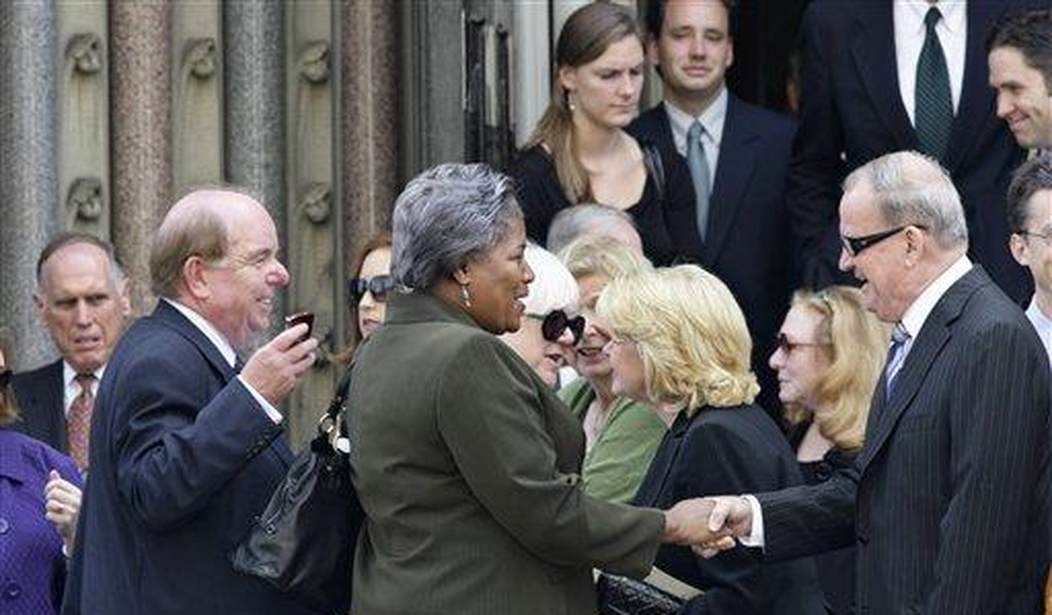Dulles, Virginia – The most influential newspaper columnist in two generations has retired. For 60 years, 800 words at a time, Pat Buchanan used his syndicated column to anchor the right flank of the Republican Party. He periodically set his column aside to advise Presidents Nixon, Ford, and Reagan. He crafted remarks they would recite and history would remember. He built a loyal following with the written word, and expanded it through popular television programs like "Crossfire" and "The McLaughlin Group."
And though he recently retired his column, his influence is as strong as ever. It was the Buchanan playbook of border security, no new wars, economic nationalism, domestic investment, and national sovereignty that Donald Trump used to win the White House in 2016.
There are now hundreds of former Trump administration and elected officials advocating an America-first political philosophy crafted over many years by Pat Buchanan.
Buchanan’s opinion columns, speeches, and books reveal a brilliant intellect with the punch of Rocky Balboa. He tapped the emotions of his readers. He summoned political principles of the Old Right and timeless truths of his Catholic faith to stir hearts. He invoked history, tradition, and patriotism to remind readers of the victories America’s forefathers secured, and the causes for which they sacrificed.
The Cold War was one subject to which Buchanan devoted numerous columns. He was anti-communist and believed reversing Soviet expansion was an imperative for American security. As White House communications director, Buchanan accompanied President Reagan to key U.S.-Soviet summits in Geneva and Reykjavik and appreciated Reagan’s tough approach to dealing with the “Evil Empire.” But what he admired even more was Reagan’s desire for a peaceful end to the Cold War and a healthy U.S. relationship with Russia.
Recommended
When the Berlin Wall came down and the Soviet empire dissolved, Buchanan implored the Republican party to reexamine security commitments and foreign aid packages that were tied to a goal already achieved.
But President George H.W. Bush was an internationalist. He wanted to expand NATO and coddle Europe. In both foreign and domestic policy, he was out of touch with working class Americans and had broken his signature promise, “no new taxes.”
Something needed to be done so Buchanan converted from columnist to candidate. On November 14, 1991, the Washington Times ran an above-the-fold headline confirming the rumors swirling around Washington. “On the right, a challenge,” it read. Pat put his ideas into action.
In his announcement, Buchanan called for a “new patriotism, where Americans begin to put the needs of Americans first.” He addressed issues such as immigration, border security, cultural decay, foreign entanglements, trade, taxes, and economic nationalism. And even though Mr. Bush was winning primaries, Buchanan was winning hearts – then and today.
On issue after issue, he forced President Bush back to the right. “[E]very time Buchanan decides to raise an issue,” explained Human Events in a March 1992 essay, “Bush, however reluctantly, appears to give ground.” Pat forced Bush to embrace tax and spending cuts, advocate for prayer in public schools, and fire John Frohnmayer, the head of the National Endowment for the Arts.
As he toured the Granite State, Pat was deeply moved by the “forgotten Americans” he met. These folks feared the foreign competition that was putting Americans out of work. He held them in his heart and carried their concerns to the convention in Houston.
He told of the workers he met just before Christmas. Their paper mill was threatened by foreign competition. “Save our jobs,” one of the workers said to him. He shared a story about a legal secretary he met at the airport who had lost her job, exhausted her savings, and worried she might lose her daughter. The convention hall was silent. Delegates were riveted to his words and shedding tears.
“My friends,” Buchanan said, “these people are our people. They don’t read Adam Smith or Edmund Burke, but they come from the same schoolyards and the same playgrounds and towns as we come from. They share our beliefs and convictions, our hopes and our dreams. They are the conservatives of the heart. They are our people and we need to reconnect with them.”
In subsequent years, forgotten Americans were victims of the North American Free Trade Agreement (NAFTA); those who lost their lives or limbs in a foreign war; traditionalists whose heroes were denigrated in the culture war; or parents who were labeled terrorists by the Department of Justice. Buchanan fought for them all and taught others to do the same.
In its March 1992 edition, National Review featured Buchanan on the cover and asked, “Will This Man Reshape American Politics?” Answer: Yes, he most certainly has.
Tom Kilgannon is the President of Freedom Alliance, a nonprofit organization that provides support to America’s military families and advocates for a strong national defense. @TomKilgannon3 on Twitter.
























Join the conversation as a VIP Member